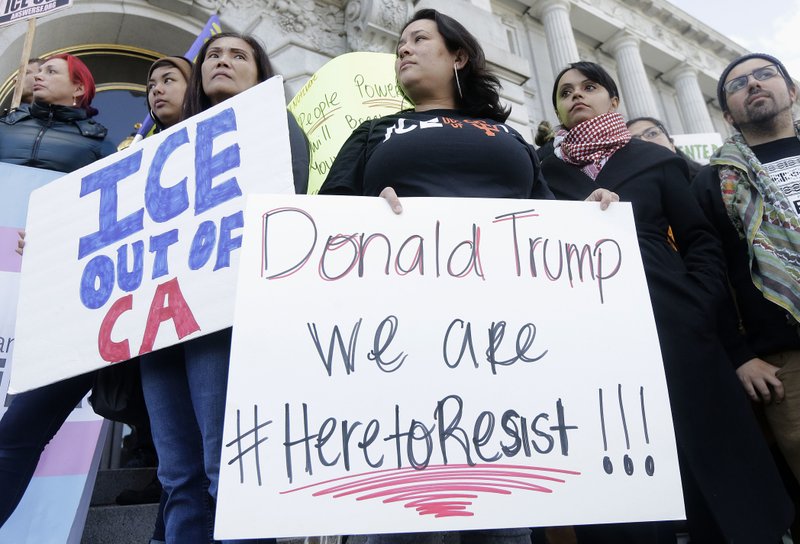
(Photo: AP)
Los Angeles (People's Daily) - When California Governor Jerry Brown signed Senate Bill 54, also known as the "sanctuary state" bill, in October 2017 – it represented a landmark moment in the nation’s history since it provides unprecedented protection for undocumented individuals.
SB 54 limits cooperation between local agencies and federal immigration authorities and has since caused a stir among the state’s counties and cities. Recently, Orange County took a stand against California's “sanctuary” law and defined it as protecting immigrants who are in the country illegally.
Some cities in the county have even begun to defy the bill signed by Brown. While standing behind the Justice Department’s lawsuit against California’s sanctuary jurisdictions, the Huntington Beach City Council decided in a 6-1 vote on April 2 to file its own lawsuit. Huntington Beach is the first city in the county to do so. Other cities such as Yorba Linda, Lake Forest, Los Alamitos and Dana Point also voted to oppose SB 54.
West Covina’s April 4 city council meeting broke down numerous times into chants and shouts as supporters and detractors of the state’s sanctuary state law faced off. In the end, despite a proposal by its mayor to oppose the law – West Covina opted to take no action.
Residents in the city of Pomona have a very different view towards illegal immigrants. Immigrant-rights groups urged the city council to adopt an ordinance to keep Pomona in conformance with SB 54, known as the California Values Act. The council approved the ordinance to ensure the implementation of SB 54 on December 18, 2017.
California-based attorney Long Z. Liu said whoever becomes California’s next governor is unlikely to change the state’s sanctuary polices simply because California is a Democratic-leaning state.
Liu Qing, a political commentator living in Southern California, said the US has been troubled by the issue of illegal immigrants since its establishment. The key to the problem lies in the country’s use of illegal immigrants as a cheap labor force in its domestic market.
“Even if President Trump had the wall built along the US-Mexico border, it does not mean there will be a massive deportation action against illegal Mexicans in the US,” Liu said. “The issue of undocumented immigration will remain a long-term problem that the US government cannot solve soon, and it will also serve as an excuse for Democrats and Republicans to attack each other.”


